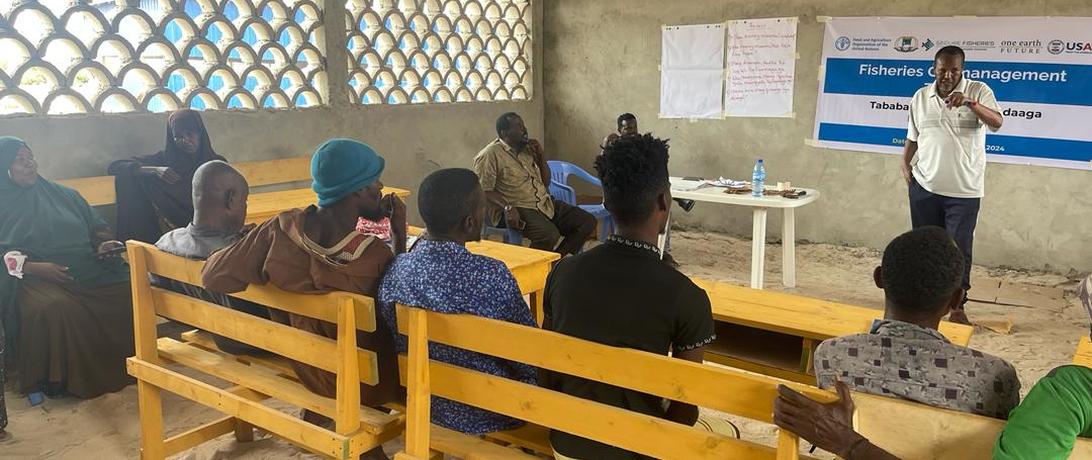The training encompassed theoretical sessions, practical exercises, and interactive discussions, offering participants a robust understanding of governance structures and collaborative approaches to fisheries management.
Key topics included the Co-Management Stakeholders' Chart, Types of Power Sharing, Potential Advantages and Disadvantages of Co-Management, Co-Management Process, Fisheries Management Planning, and the importance of Monitoring and Evaluation.
Ahmed Yasin Moge, the Director of Secure Fisheries says "Injoni, situated 20 km south of Kismayo in the Lower Juba province in Somalia, relies heavily on the fishing sector for sustenance. The population, though relatively low compared to neighboring towns, depends primarily on fishing activities, with lobsters being a significant catch sold to fish traders visiting Injoni.”
"The goals of the new co-management associations include giving communities a clear method of communication with the government, providing a means to resolve conflicts as they arise, building local ownership over coastal and marine resources, and developing fisheries management plans that are profitable and environmentally sustainable for the long-term," he added.
The training initiative underscores Secure Fisheries' commitment to building local capacity and fostering sustainable practices within Somalia's fishing communities. By equipping participants with essential knowledge and skills, the program aims to promote responsible fisheries management and enhance livelihoods in coastal regions.
